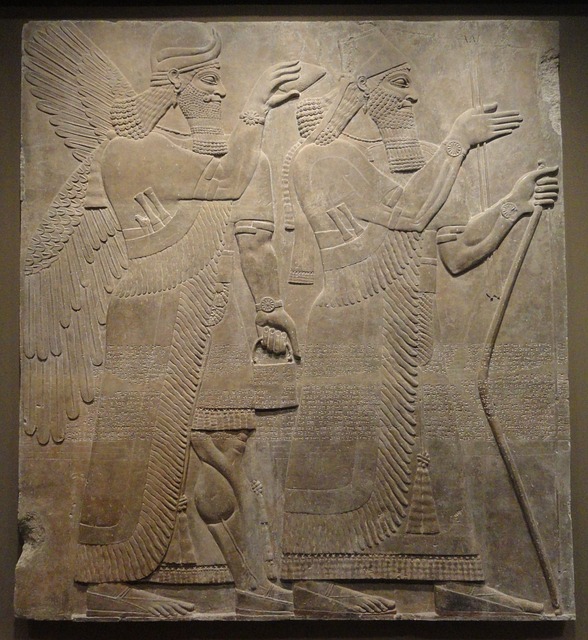By Tim Lambert
The Assyrians were a warlike people from the north of what is now Iraq. From about 880 BC to 612 BC they ruled a great empire in the Middle East.
The first great Assyrian king was Tiglath-pileser (c.1115-1077) who warred against people in Asia Minor and who defeated the Babylonians (of southern Iraq). However, the following kings were not as able as him.
Yet about 880 BC the Assyrians began to expand again. Ashurnasirpal II (883-859) proved to be a very capable general as well as a king. He was followed by his son Shalmaneser III who continued to expand the Assyrian empire.
However, the Assyrians were notoriously cruel. Defeated enemies were impaled, beheaded, or flayed. The Assyrians also introduced a policy of deportations. Whole populations were deported from their native territory and other people were brought in to replace them. Despite their cruelty, the Assyrians were also skilled artists, architects, engineers, and sculptors.
Upper-class Assyrians enjoyed gardens. They created large hunting parks but they also made pleasure gardens irrigated by water canals. The Assyrians planted trees such as palms and cypresses. Like the Egyptians, they planted the trees in rows, sometimes alternating species. They also created ponds and cultivated vines and some flowers.
The Assyrians were superb soldiers. They used a combination of chariots, cavalry, and infantry. Each chariot carried a crew of 3, a driver, an archer, and a shield-bearer. Cavalry fought with bows and spears. The infantry fought with bows, spears, swords, and slings. The Assyrians also equipped their soldiers with sturdy boots, which helped on long marches.
The Assyrian Empire reached a peak in the 7th century BC. Led by King Esarhaddon (680-669) they conquered Egypt in 671. However, controlling such a vast empire was not easy. The city-state of Babylon was particularly active in resisting the Assyrians.

Finally, in the 620s BC, the Assyrian Empire was split by civil war. As a result, Assyrian resources were overstretched. Babylon led a rebellion and in 612 they destroyed the Assyrian capital Nineveh.